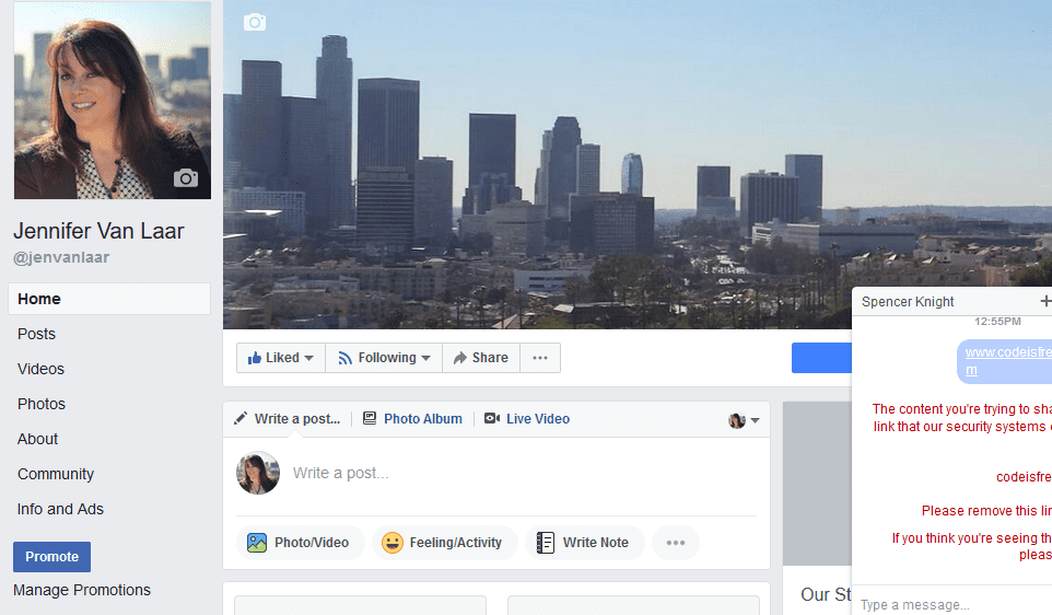When conservatives point out left-wing media bias, more often than not we point to national news outlets – CNN, MSNBC, the New York Times, etc. With good reason. These outlets spread disinformation and suppress context — even facts – daily in such a way as to disadvantage conservative policymakers.
While local media outlets sometimes betray their biases, they tend to be far less partisan (if at all) and many notable publications even tilt to the right, such as the New Hampshire Union Leader and the Arkansas Democrat-Gazette.
The slow, steady decline of local media has been hard to watch. Much of the decline comes through the market dominance of Big Tech companies like Google and Facebook, which sample news content for eyeballs and clicks but keep most of the ad revenue. Thus we’ve ended up with a weird news ecosystem in which the content creators and owners do most of the work and the delivery systems make most of the money. Imagine a bygone era where the paperboys made the big bucks and the hardboiled, cigar-chomping publishers answered to them.
This isn’t the outcome of market forces. Instead, in an odd twist, antitrust law protects Goliath from David; Google, Facebook, and Twitter from local publishers.
A bipartisan group in both the U.S. House and the Senate is sponsoring a measure to allow smaller, local – and more conservative — publishers to collectively negotiate better compensation for their valuable content. The bill is called the Journalism Competition and Preservation Act (JCPA). Among Congressional conservatives who support this approach are Sen. John Kennedy (R-La.) and Rep. Ken Buck (R- Co.)
In an editorial endorsing the measure, National Review describes the JCPA this way:
It would allow news publishers to band together to negotiate with Google and Facebook over compensation for the use of news content. The publishers would have a limited exemption from antitrust laws for this purpose. The federal government, note, would not be providing news outlets with taxpayer money or requiring the tech companies to pay them specified terms. It would simply be getting out of the way while they reached a deal on a more level field. Given that the main purpose of antitrust law is to help consumers by promoting competition, it is perverse to apply it in a way that aids behemoths while reducing the quantity, quality, and diversity of news offerings.
In an Op-Ed in the Daily Caller, Mike Davis, founder and president of the conservative Internet Accountability Project, urges Congress to include the JCPA in the catalogue of legislative approaches designed to curb Big Tech’s abuses:
Supporters of JCPA recognize that it will not curb every abuse. In many respects, Google, Facebook and Twitter will continue to serve as gatekeepers for the vast majority of content reaching the American people. In that capacity, they have had the ability to censor information with which they disagree. We saw their abuse of such awesome power during the 2020 election when they chose to kill legitimate news stories before the public had a chance to evaluate them. We have seen this in the recent Twitter ban of James O’Keefe for his CNN expose and Facebook preventing Americans from sharing a New York Post story — one of our nation’s oldest newspapers — on the property spending spree of a BLM co-founder. And in Australia, Facebook recently blocked users from sharing any news articles and even prevented authorities from circulating emergency messages — all in an attempt to pressure the government into backing down from enacting legislation similar to JCPA. Manipulation such as this ought to scare every American, and lawmakers from both parties should give serious thought to legislation aimed at limiting Big Tech’s unrestrained power.
Davis is correct. The JCPA won’t stop Big Tech censorship in and of itself. But in coordination with other important antitrust measures, the JCPA can begin to rebalance the scales between the people and Big Tech.














Join the conversation as a VIP Member